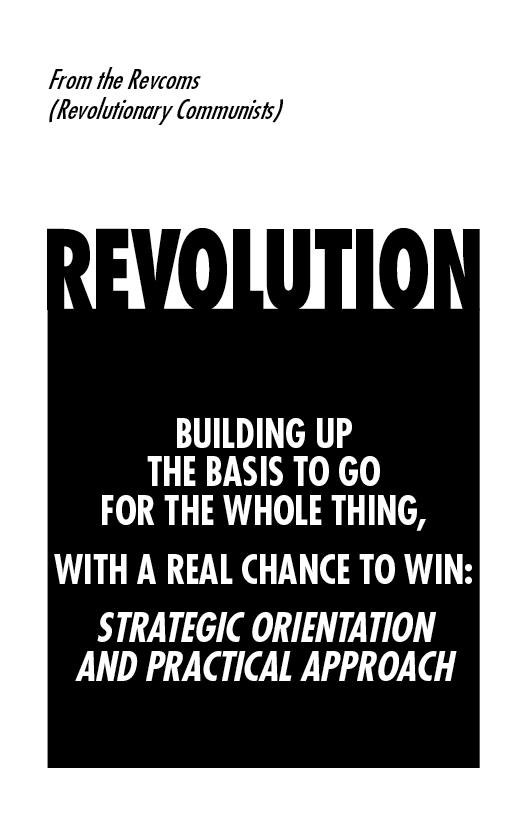The following are excerpts from the beginning of Part 2 of Making Revolution and Emancipating Humanity.
Hastening while awaiting—not bowing down to necessity
It is true that we cannot, by our mere will, or even merely by our actions themselves, transform the objective conditions in a qualitative sense—into a revolutionary situation. This cannot be done merely by our operating on, or reacting back on, the objective conditions through our conscious initiative. On the other hand, once again a phrase from Lenin has important application here. With regard to the labor aristocracy—the sections of the working class in imperialist countries which are, to no small extent, bribed from the spoils of imperialist exploitation and plunder throughout the world, and particularly in the colonies—Lenin made the point that nobody can say with certainty where these more “bourgeoisified” sections of the working class are going to line up in the event of the revolution—which parts of them are going to be with the revolution when the ultimate showdown comes, and which are going to go with the counter-revolution—nobody can say exactly how that is going to fall out, Lenin insisted. And applying this same principle, we can say that nobody can say exactly what the conscious initiative of the revolutionaries might be capable of producing, in reacting upon the objective situation at any given time—in part because nobody can predict all the other things that all the different forces in the world will be doing. Nobody’s understanding can encompass all that at a given time. We can identify trends and patterns, but there is the role of accident as well as the role of causality. And there is the fact that, although changes in what’s objective for us won’t come entirely, or perhaps not even mainly, through our “working on” the objective conditions (in some direct, one-to-one sense), nevertheless our “working on” them can bring about certain changes within a given framework of objective conditions and—in conjunction with and as part of a “mix,” together with many other elements, including other forces acting on the objective situation from their own viewpoints—this can, under certain circumstances, be part of the coming together of factors which does result in a qualitative change [to a revolutionary situation]. And, again, it is important to emphasize that nobody can know exactly how all that will work out.
Revolution is not made by “formulas,” or by acting in accordance with stereotypical notions and preconceptions—it is a much more living, rich, and complex process than that. But it is an essential characteristic of revisionism (phony communism which has replaced a revolutionary orientation with a gradualist, and ultimately reformist one) to decide and declare that until some deus ex machina—some god-like EXTERNAL FACTOR—intervenes, there can be no essential change in the objective conditions and the most we can do, at any point, is to accept the given framework and work within it, rather than (as we have very correctly formulated it) constantly straining against the limits of the objective framework and seeking to transform the objective conditions to the maximum degree possible at any given time, always being tense to the possibility of different things coming together which bring about (or make possible the bringing about of) an actual qualitative rupture and leap in the objective situation.
So, if you are looking at things only in a linear way, then you only see the possibilities that are straight ahead—you have a kind of blinders on. On the other hand, if you have a correct, dialectical materialist approach, you recognize that many things can happen that are unanticipated, and you have to be constantly tense to that possibility while consistently working to transform necessity into freedom. So, again, that is a basic point of orientation.
Hastening while awaiting—not bowing down to necessity.
